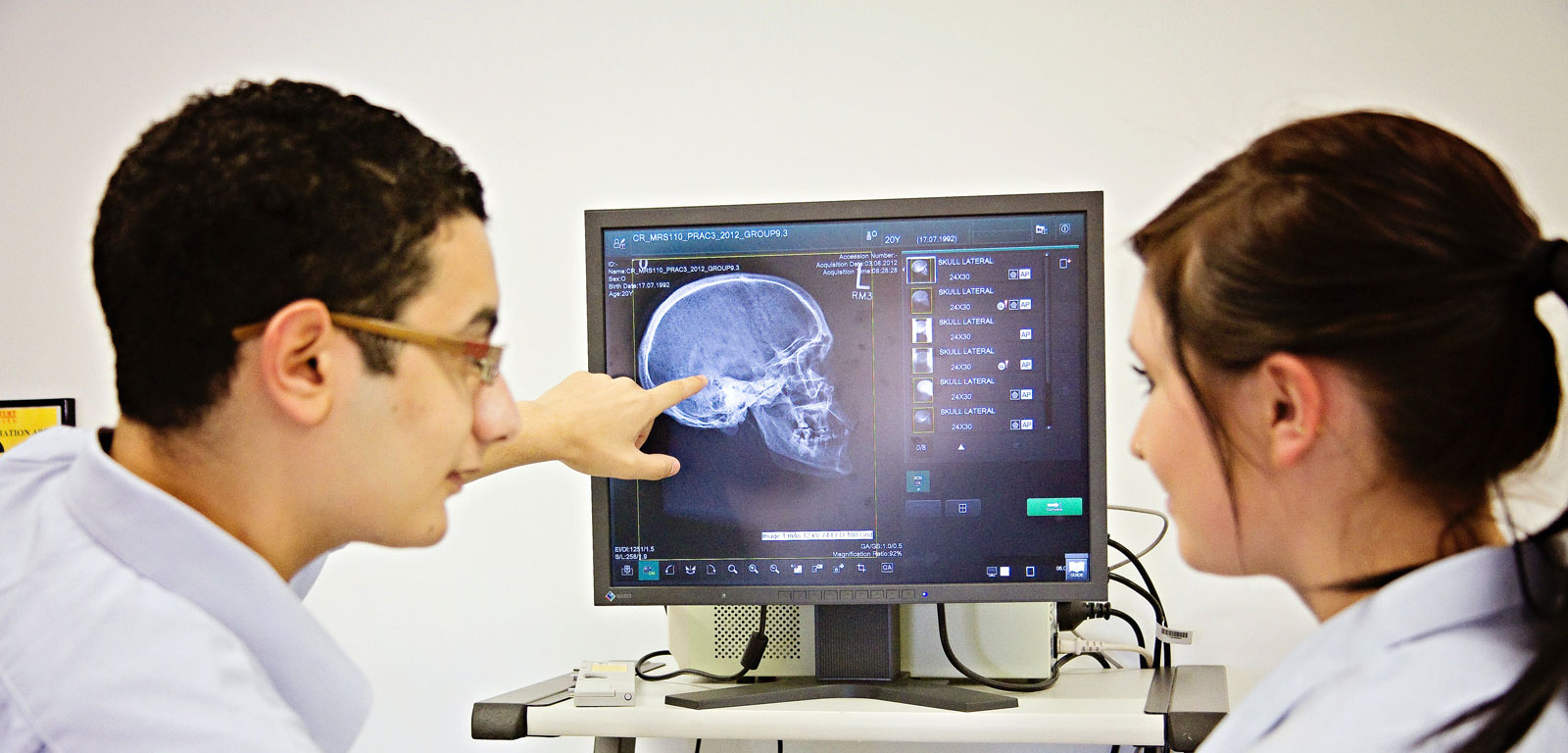

Senior secondary school qualification
Admission to our undergraduate degree programs usually requires successful completion of a senior secondary school qualification similar to the Higher School Certificate (HSC), the highest educational award in New South Wales schools.
Post-secondary study
Further education like diplomas and university study can also be assessed for admission.
IELTS overall minimum - 7.0
IELTS section minimum - 7.0
A radioactive way to save and improve lives.
Nuclear medicine graduates from the University of Newcastle are sought after worldwide. In this rewarding and challenging degree, you will learn to diagnose, treat, and prevent diseases such as cancer using radioactive substances – giving patients the best chance of living a full and healthy life.
What is nuclear medicine?
Nuclear medicine students learn how to conduct nuclear medicine scans of a person’s body using radioactive material called radioisotopes. Radioisotopes are typically ingested or injected, travelling through the affected area to create images of the inside of your body. These images can diagnose life-threatening diseases such as cancer and help monitor a patient’s health.
More Info: click here
By studying a degree in nuclear science you will learn specialised scientific knowledge and develop practical medical radiation experience using world-class facilities and technology. You will:
Build essential clinical reasoning and patient management skills using our state-of-the-art radiopharmacy labs located on campus.
Develop communication and interpersonal skills to provide a high level of care to patients.
Gain professional nuclear medicine skills, learning how to use imaging technology and radioisotope to diagnose illnesses and determine the best course of treatment for patients.
Develop critical research skills that will set you in good stead for life-long learning in the field of nuclear medicine.
Students who study our Bachelor of Medical Radiation Science in nuclear medicine will be able to enrol in a range of radiation science courses including:
anatomy
molecular imaging
nuclear medicine instrumentation and radiopharmacy
nuclear medicine theory
patient care
physiology
psychology
research
All University of Newcastle medical radiation science students graduate with Honours, giving you a distinct advantage when seeking employment. As part of the honours component you can choose from two study pathways.

Our nuclear medicine graduates are very employable and highly regarded. Many of our graduates have advanced rapidly in their careers and are now in management roles in Australia and overseas.
University of Newcastle nuclear medicine graduates are qualified to register and work as nuclear medical technologists, working closely with patients and other health professionals to diagnose life-threatening diseases such as cancer and help monitor a patient’s health. You may find yourself working in clinical positions in private and public hospitals, in upper management roles such as director of services, or in higher education and research roles.
Take a look below for some common roles for medical radiation science graduates.
echocardiography technologist
medical technician
nuclear medicine technologist
research scientist
sonographer
technical sales representative
technical writer
university lecturer/academic

OSHC: 530 ($) AUD per year